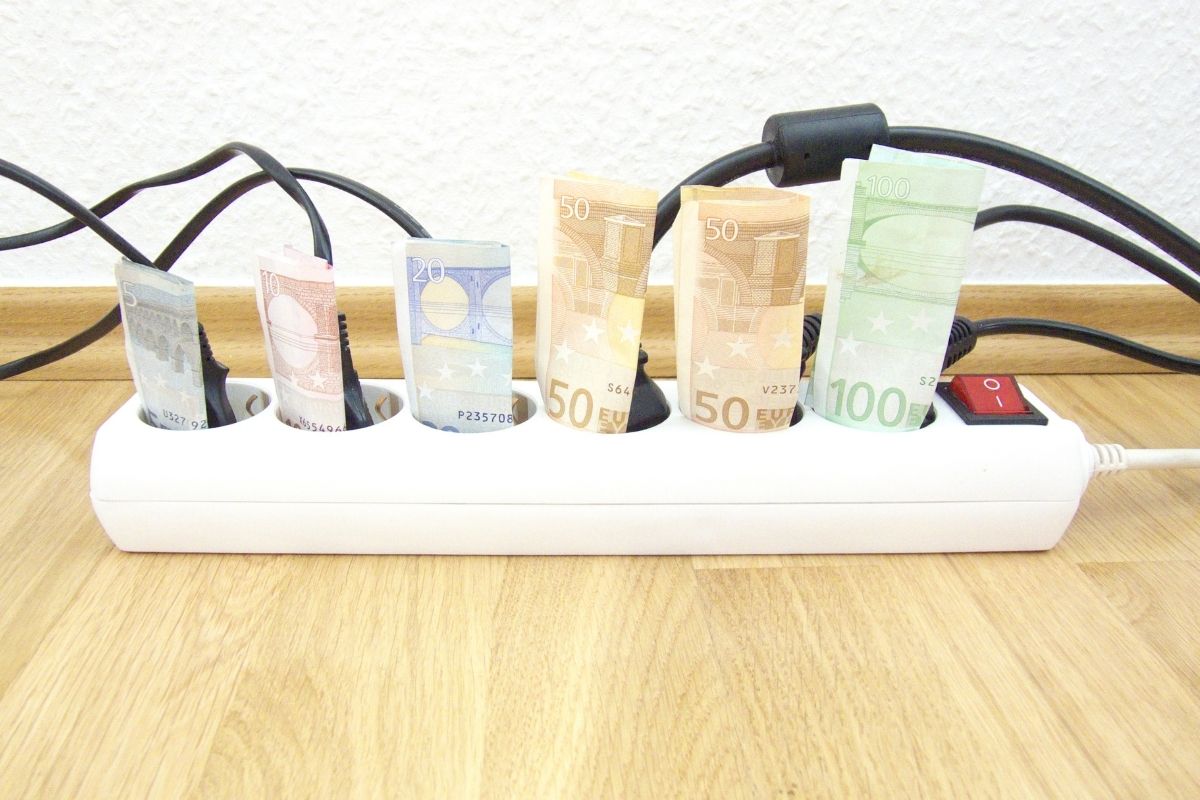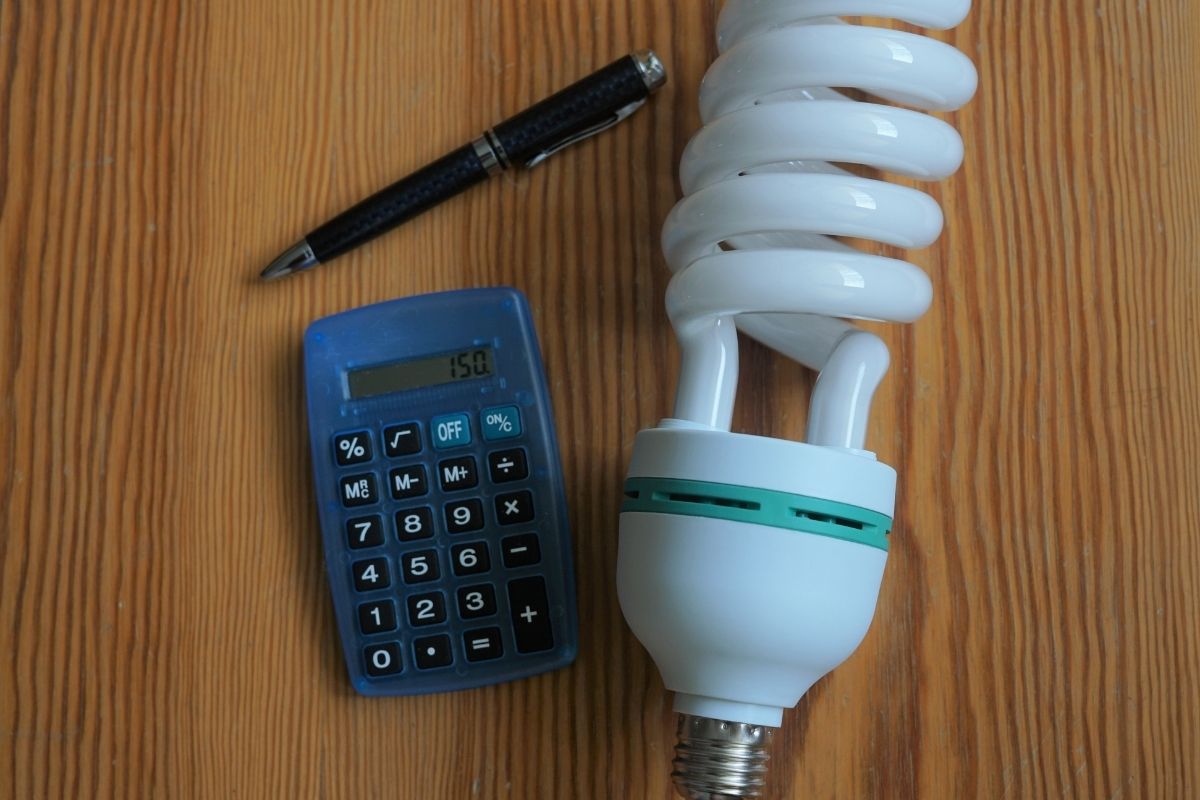Unfortunately, utilities can add up quickly, and most of the time you don’t know what the cost will be until you receive a bill.

But at least you’ll never pay more than your rates indicate. To avoid an electric shock, make sure that your bills are accurate. Call your utility to ask if they gave you a correct reading.
Check with a friend who has had their power turned on recently to see how much it costs. You may want to compare those numbers to your own usage.
For example, insulating your attic or adding new windows can help keep heat out during the winter and cool air in during the summer. The same goes for replacing old appliances with newer models.
This is where we would recommend getting some advice from professionals. They’ll be able to give you tips on whether these projects are right for you, as well as which ones will save you the most money.
If you think you have to spend a lot of money on your home’s energy efficiency, think again. A few simple changes in your home could greatly reduce your monthly energy expenses without costing a lot of money.
Here are a few ways to tell if you are overspending and what to do.
Choosing What You Spend Your Money On
I’m sure you’ve heard of the saying “You get what you pay for”. Well, if you want to save money on your utilities, then you need to know what you’re paying for.
You’ll definitely want to know your average usage per month, and whether you’re getting the most bang for your buck. This will help you decide whether you should upgrade to a higher tier service plan.
Average energy costs vary by state. You should try to stay within a budget of 10% of your income.
Other factors include whether you work from home, how many people live with you, and temperature trends in your area during the warm and cool months.
When selecting an energy provider, it’s always best to choose one that has great customer service.
If something goes wrong with your bill payments, you can always contact your current company and ask about changing over to their service.
Tips On Cutting Your Utility Bills
It is a good idea to budget for your utility bill, but figuring out how much it will be can be difficult.
There are, however, some things that you can do in order to save a great deal of money on your utility bill and still keep it low.
- Hot water should be at a temperature of 120 degrees or fewer.
- Leaking sinks, toilets and plumbing should be repaired as soon as possible.
- Appliances should not be running in the daytime when you are not home.
- Running them during the night will cause your air conditioner to work harder in the summer.
- Air conditioners work by using refrigerants to lower the temperature inside your house.
- Refrigerant leaks can be dangerous if left untreated.
- You should replace your air filter every 3 months.
- You should also skip your oven when possible. Instead, use a microwave, convection oven, or other smaller appliance.
- Your kitchen should stay cooler in the summer and warmer in the winter.
- Ceiling fans circulate cool air while drawing warm air upwards.Your home should be sealed tight to prevent cold air from coming inside during winter months. You should adjust the temperature of your home according to the season.
- Shorter showers are recommended.
- A more efficient shower head can save you money on your monthly utility bills.
- An efficient shower head also saves water.
- Spending less on utilities will allow you to spend less money and live a more comfortable life.
The Average Electricity Bill In America
The average American spends about 40 percent of their home’s energy on space heating and air conditioning. Appliances, electronics, and lighting account for 35 percent of the energy used in homes.
Higher-income households use more energy than low-income households. States with higher average electric bills include Hawaii, Alaska, Connecticut, and Rhode Island.

Lower-income states include Nevada, Montana, Wyoming, and Idaho. You should try to save electricity as much as possible.
Your roommates might use more than you do. You can get some apps to help you out. Air conditioning is expensive, but it’s also an essential part of life.
You should check the filters regularly and adjust the settings as needed. If you live in warmer climates, you may be able to turn off the air entirely. Make sure your thermostat stays at a high setting when you aren’t using it.
Switching to LEDs and using smart power strips saves money and reduces energy usage. You should also unplug any appliances that aren’t used regularly.
The price of electricity in Texas is incredibly cheap – 26 cents per kWh overall, some of the cheapest in the country. What makes this cheaper than other states? Well, the good news is that they have lots of sun.
The bad news is that the coal reserves are limited when compared to many other countries. That means that Texas must import a lot of power from places like California and Oklahoma.
The wind farms allow them to offset part of those imports.
Frequently Asked Questions
Is There Anything You Can Learn From The Electricity Bill?
Charges for your electricity consumption in this period: You will find this information on your bill. If you haven’t taken regular meter readings, it won’t be as accurate.
You can use this when switching providers since it should provide the most accurate information.
What Percentage Of Your Energy Bill Does Your Supplier Contribute?
Your energy bill is about a third accounted for by them. Electricity and gas are purchased on the wholesale market by suppliers. It is common for wholesale prices to fluctuate rapidly.
Summary
Make sure you ask “How much do utilities cost?” This is so important when you are looking at potential homes to plan your budget. Several factors will contribute to the answer.
Consider starting with national averages to get a good idea of how much utilities cost in the U.S. Once you have this information, you will be able to estimate what you might be paying in your area.
By following the steps we have provided you with, you will be able to budget your utility bills more effectively, specifically your electrical ones.
Financial Disclaimer
This post contains sponsored advertising content. This content is for informational purposes only and not intended to be investing advice.
The investing information provided on this page is for educational purposes only. compundingstacks.com does not offer advisory or brokerage services, nor does it recommend or advise investors to buy or sell particular stocks or securities.
The owner(s) of this blog is compensated to provide opinion on products, services, websites, and other topics. The owner(s) may be compensated if you click on a provided link and purchase or sign up for a service. Any product claim or advice about a product or service should be verified with the manufacturer, provider, or party in question. Copyright Compounding Stacks © 2022
- Is Coinbase Safe For Beginners? - March 25, 2022
- Are Penny Stocks Good For Beginners? - March 25, 2022
- Why You Shouldn’t Save Your Money In A Bank? - March 25, 2022
